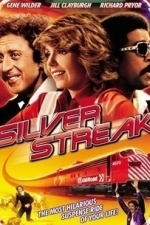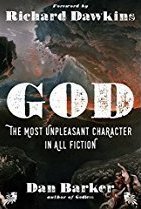Search
Search results
BankofMarquis (1832 KP) rated Silver Streak (1976) in Movies
Jun 7, 2020
The start of a wonderful comedic partnership
Most people remember Gene Wilder as the frazzled haired wild man in such Mel Brooks classic films as THE PRODUCERS, BLAZING SADDLES and YOUNG FRANKENSTEIN. Others will recall him as the mad genius that held our attention in WILLY WONKA AND THE CHOCOLATE FACTORY, but there was a 3rd phase to Wilder's career - his unlikely partnership with Richard Pryor - that started with 1976's SILVER STREAK.
Set aboard the titular passenger train, SILVER STREAK is part Alfred Hitchcock "wrong man" suspense thriller, part comedy and part action flick with strong performances at the center anchoring the action.
Surprisingly, Wilder brings a sincere quality to his "everyman" hero of this tale. His book editor, George Caldwell, just wants a quiet 2 1/2 day trip on the train from Los Angeles to Chicago. You root for George from the start. Wilder's performance is deftly tailored to this movie, keeping a lid on his more frenetic energy that helps keep his character grounded. He pairs nicely with Jill Clayburgh (remember her from the '70's?) as a women he meets (and falls in love with) along the way. Clayburgh burst into the spotlight with this performance - and the 2 have tremendous chemistry together.
They are joined by a bevy of wonderful character actors - Ray Walston, Richard "Jaws" Kiel, Ned Beatty, Clifton James, Valerie Curtin, Fred Willard and the great Scatman Crothers. All bring life and energy to this film. Patrick McGoohan is perfectly cast as the villain of the piece. His "buttoned-up" bad guy is the perfect balance to the Wilder's character.
But, of course, the person who steals this film is the great Richard Pryor as Grover T. Muldoon, a petty thief, con-man and "street-wise" hood who aids George in defeating the bad guys. Pryor doesn't show up in this movie until about 1/2 way through, but when he does, the energy (and pace) of this film picks up considerably and the roller coaster ride begins. The comedic partnership between Wilder and Pryor is magnificent, they play off each other very well and they will end up pairing together in 3 other films after this.
Director Arthur Hiller (THE AMERICANIZATION OF EMILY) does a strong, professional job of keeping the movie moving, keeping events grounded until a thrilling conclusion that is satisfying, indeed.
A fun action-thriller that is perfect summer fodder.
Letter Grade: A-
8 stars (out of 10) and you can take that to the Bank(ofMarquis)
Set aboard the titular passenger train, SILVER STREAK is part Alfred Hitchcock "wrong man" suspense thriller, part comedy and part action flick with strong performances at the center anchoring the action.
Surprisingly, Wilder brings a sincere quality to his "everyman" hero of this tale. His book editor, George Caldwell, just wants a quiet 2 1/2 day trip on the train from Los Angeles to Chicago. You root for George from the start. Wilder's performance is deftly tailored to this movie, keeping a lid on his more frenetic energy that helps keep his character grounded. He pairs nicely with Jill Clayburgh (remember her from the '70's?) as a women he meets (and falls in love with) along the way. Clayburgh burst into the spotlight with this performance - and the 2 have tremendous chemistry together.
They are joined by a bevy of wonderful character actors - Ray Walston, Richard "Jaws" Kiel, Ned Beatty, Clifton James, Valerie Curtin, Fred Willard and the great Scatman Crothers. All bring life and energy to this film. Patrick McGoohan is perfectly cast as the villain of the piece. His "buttoned-up" bad guy is the perfect balance to the Wilder's character.
But, of course, the person who steals this film is the great Richard Pryor as Grover T. Muldoon, a petty thief, con-man and "street-wise" hood who aids George in defeating the bad guys. Pryor doesn't show up in this movie until about 1/2 way through, but when he does, the energy (and pace) of this film picks up considerably and the roller coaster ride begins. The comedic partnership between Wilder and Pryor is magnificent, they play off each other very well and they will end up pairing together in 3 other films after this.
Director Arthur Hiller (THE AMERICANIZATION OF EMILY) does a strong, professional job of keeping the movie moving, keeping events grounded until a thrilling conclusion that is satisfying, indeed.
A fun action-thriller that is perfect summer fodder.
Letter Grade: A-
8 stars (out of 10) and you can take that to the Bank(ofMarquis)
BookblogbyCari (345 KP) rated God: The Most Unpleasant Character in All Fiction in Books
Oct 16, 2018
A striking book designed to hit Christianity in the heart.
(Please note: It is beyond the scope of this book review to go into whether or not there is a God, or if God is good.)
This book is written by Dan Barker, a former evangelical preacher. The inspiration for this book comes from a single paragraph in Richard Dawkin’s God Delusion, which goes as follows:
“The God of the Old Testament is arguably the most unpleasant character in all fiction: jealous and proud of it; a petty, unjust, unforgiving control-freak; a vindictive, bloodthirsty ethnic cleanser; a misogynistic, homophobic, racist, infanticidal, filicidal, pestilential, megalomanical, sadomasochistic, capriciously malevolent bully.”
Now that’s quite a statement! And it’s also what Barker’s book is centred around. In Part 1, Barker sets out examples of these 19 characteristics within the Christian bible.
Sadly for Christianity, not only had barker found examples of every single one of these 19 characteristics, but he usually found several examples in every case. In fact, the reason I haven’t given it a higher rating is because it was so repetitive, with so many examples of remarkably similar and disturbing passages. A whole chapter is dedicated to each of the descriptors in turn, and the whereabouts of each of the passages are clearly noted in bold before being presented underneath.
In Part 2, Barker takes the argument further still:
“He [Dawkins] forgot to mention that the God of the Old Testament is also a pyromaniacal, angry, merciless, curse-hurling, vaccicdal, aborticidal, cannibalistic slavemonger.”
Again, the following chapters are full of examples of these characteristics.
The book is predominantly a laundry list of evil requests and doings of the God of the Old Testament, but Chapter 28 asks “What About Jesus?” And here Barker even manages to find evidence that Jesus endorsed invasion and bloodshed (Deuteronomy 6.15-19), and encouraged the beating of slaves (Luke 12:47-48). Barker also sites a lot of Jesus’ bad advice
Several passages may be unpleasant for even strong atheists to read. I couldn’t get over how many times “fingers dripping with blood” comes up in the Bible.
Overall, Barker has little comments around and between the examples he sights, but I would suggest that this makes for a stronger argument, handing the role of jury to the reader. Obviously this book will upset just about any Christian who attempts to read it, and for those who do read it may feel better to recall that the analysis is only of how God is presented in the Bible, and not an analysis of any effect (if any) of God in their daily lives.
This book is written by Dan Barker, a former evangelical preacher. The inspiration for this book comes from a single paragraph in Richard Dawkin’s God Delusion, which goes as follows:
“The God of the Old Testament is arguably the most unpleasant character in all fiction: jealous and proud of it; a petty, unjust, unforgiving control-freak; a vindictive, bloodthirsty ethnic cleanser; a misogynistic, homophobic, racist, infanticidal, filicidal, pestilential, megalomanical, sadomasochistic, capriciously malevolent bully.”
Now that’s quite a statement! And it’s also what Barker’s book is centred around. In Part 1, Barker sets out examples of these 19 characteristics within the Christian bible.
Sadly for Christianity, not only had barker found examples of every single one of these 19 characteristics, but he usually found several examples in every case. In fact, the reason I haven’t given it a higher rating is because it was so repetitive, with so many examples of remarkably similar and disturbing passages. A whole chapter is dedicated to each of the descriptors in turn, and the whereabouts of each of the passages are clearly noted in bold before being presented underneath.
In Part 2, Barker takes the argument further still:
“He [Dawkins] forgot to mention that the God of the Old Testament is also a pyromaniacal, angry, merciless, curse-hurling, vaccicdal, aborticidal, cannibalistic slavemonger.”
Again, the following chapters are full of examples of these characteristics.
The book is predominantly a laundry list of evil requests and doings of the God of the Old Testament, but Chapter 28 asks “What About Jesus?” And here Barker even manages to find evidence that Jesus endorsed invasion and bloodshed (Deuteronomy 6.15-19), and encouraged the beating of slaves (Luke 12:47-48). Barker also sites a lot of Jesus’ bad advice
Several passages may be unpleasant for even strong atheists to read. I couldn’t get over how many times “fingers dripping with blood” comes up in the Bible.
Overall, Barker has little comments around and between the examples he sights, but I would suggest that this makes for a stronger argument, handing the role of jury to the reader. Obviously this book will upset just about any Christian who attempts to read it, and for those who do read it may feel better to recall that the analysis is only of how God is presented in the Bible, and not an analysis of any effect (if any) of God in their daily lives.

